Publications
Articles, publications, books, tools and multimedia features from the U.S. Institute of Peace provide the latest news, analysis, research findings, practitioner guides and reports, all related to the conflict zones and issues that are at the center of the Institute’s work to prevent and reduce violent conflict.
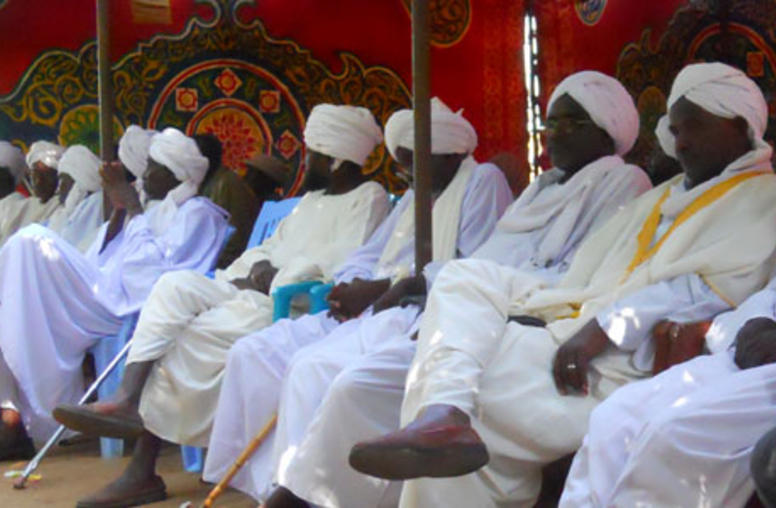
“Peace Conferences Don’t Always Work” and Other Lessons for Achieving Sustainable Peace in South Sudan and Sudan
The recent re-eruption of political violence in South Sudan in late 2013 has not only inflamed long-standing and unresolved local grievances, but also highlights the critical need to improve the impact and sustainability of local peace processes in any region. In the new Peaceworks, “Local Peace Processes in Sudan and South Sudan,” USIP’s Jacqueline H. Wilson outlines the importance of understanding and improving local peace processes.
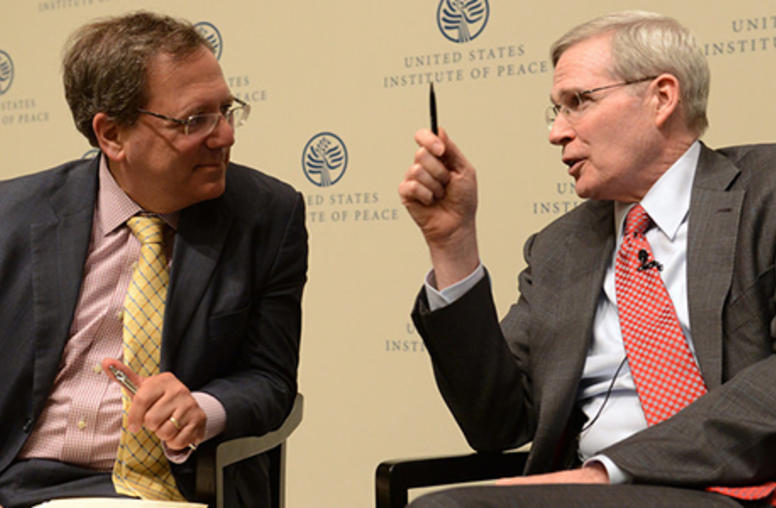
USIP’s Hadley Scans Conflict Horizon for Civilian Solutions
U.S. Institute of Peace Board Chairman and former National Security Advisor Stephen J. Hadley said shifts in the nature of conflict worldwide demand sophisticated, long-term strategies to address conflicts from Europe to the Middle East to Asia.
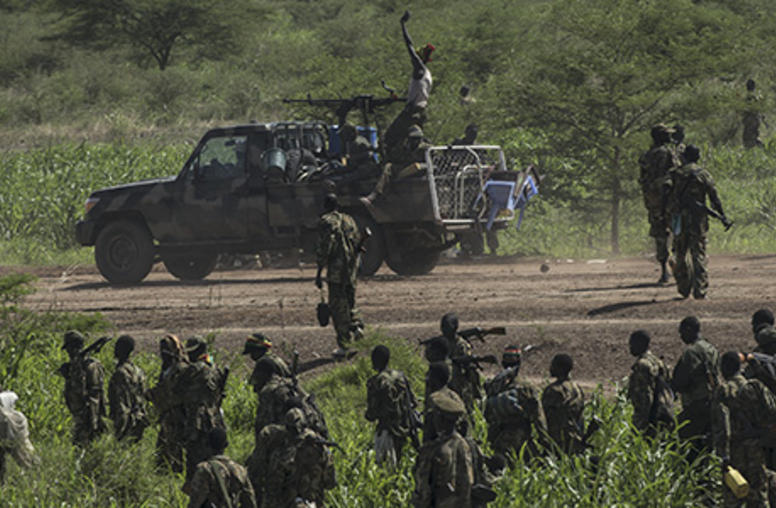
Q&A: South Sudan’s Violence
Leaders involved in South Sudan’s conflict signed a ceasefire agreement late last week in the second such effort to end violence that has beset the world’s newest independent nation. Jon Temin, USIP’s director of Africa programs, discusses the conflict, international approaches to encourage a resolution and strategies to help move the country forward.
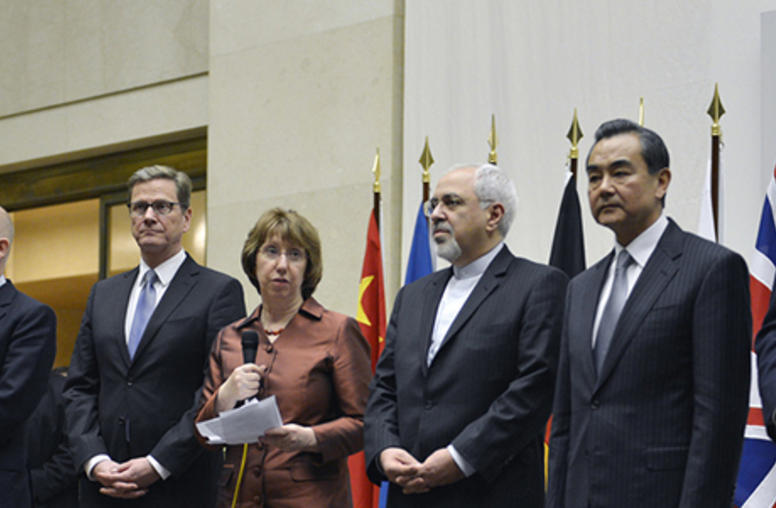
Countdown to the Final Iran Nuclear Deal
There’s no single formula for a nuclear deal with Iran. The United States compares negotiations to solving a Rubik’s Cube™, because so many pieces are involved—and moving one moves all the others.
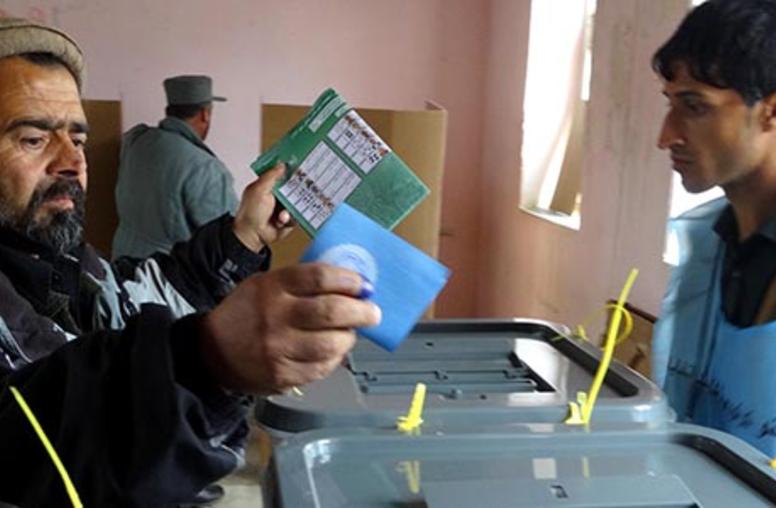
Let Afghan Voters Finish the Job
Kabul has been full of rumors about an attempt to reach a "political deal" in order to avoid a second round of voting required by the constitution. Strangely, most of the commentary in the western press has treated such a deal as if it would be desirable. We believe it would be a huge mistake.
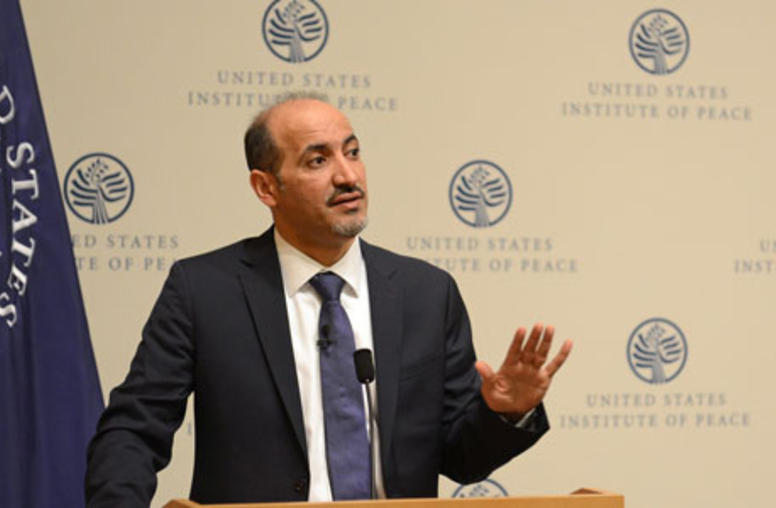
Syrian Opposition Leader Jarba Appeals for U.S. Understanding, Weapons
Syrian Opposition Coalition leader Ahmad Jarba, giving his first official address in the U.S., appealed for Americans to understand the movement's fight for "dignity," and for the Obama administration to provide the weapons rebels need to thwart the regime's barrel bombs that are "making our lives a nightmare."
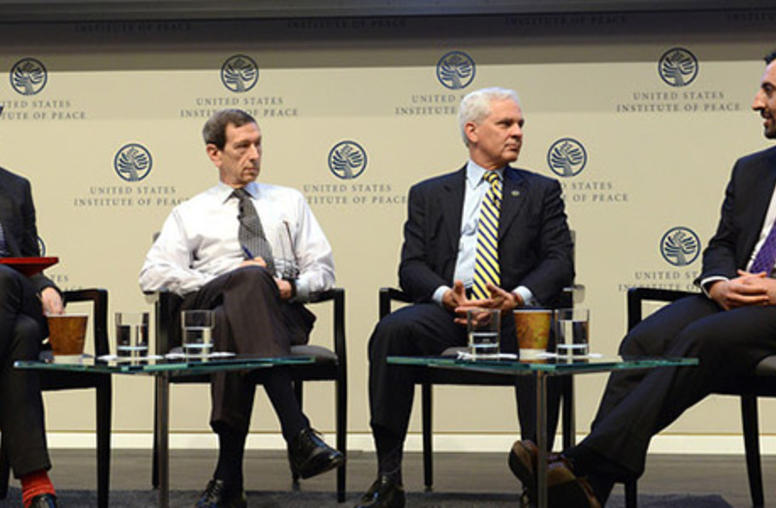
The Volatile Factors Underlying a Potential Iran Nuclear Deal
As the clock ticks toward a July 20 deadline for a nuclear deal with Iran, two former U.S. officials, a RAND Corp. analyst and a longtime advocate for eliminating the threat of nuclear weapons examined the volatile issues still to be resolved and the many formulations for potential solutions.
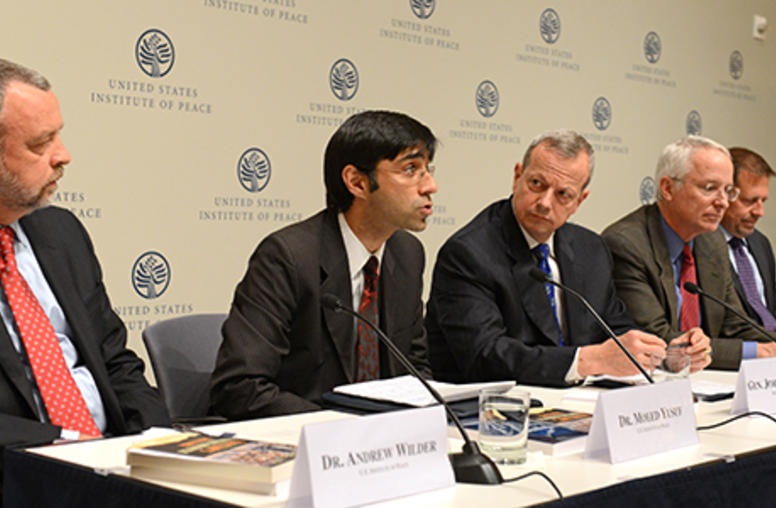
Pakistan’s Lack of Consensus, Capacity Undercut Efforts against Militants
Efforts in Pakistan to address the internal threat from insurgents are repeatedly undermined by the absence of a national consensus on who the enemy is and a lack of capacity to implement solutions even where agreement exists, according to Moeed Yusuf, USIP’s director of South Asia programs.
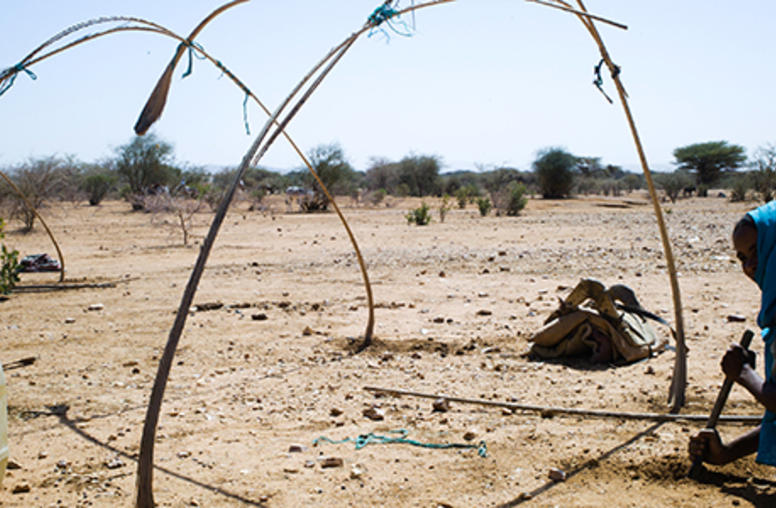
Sudan – A Conversation with Former Special Envoy Princeton Lyman: Part 3
Ambassador Princeton N. Lyman served as U.S. special envoy for Sudan and South Sudan from March 2011 to March 2013 before joining the U.S. Institute of Peace as a senior adviser to the USIP president. Arif Omer, the first to hold a new four-month Sudanese youth leader residency at USIP, interviewed Lyman at length on the violence and political conflicts that have torn the African country for decades. The edited interview is being presented on The Olive Branch this week in three parts -- efforts to encourage a national dialogue, Sudan’s relations with the West and what the future holds for the conflict-torn nation.
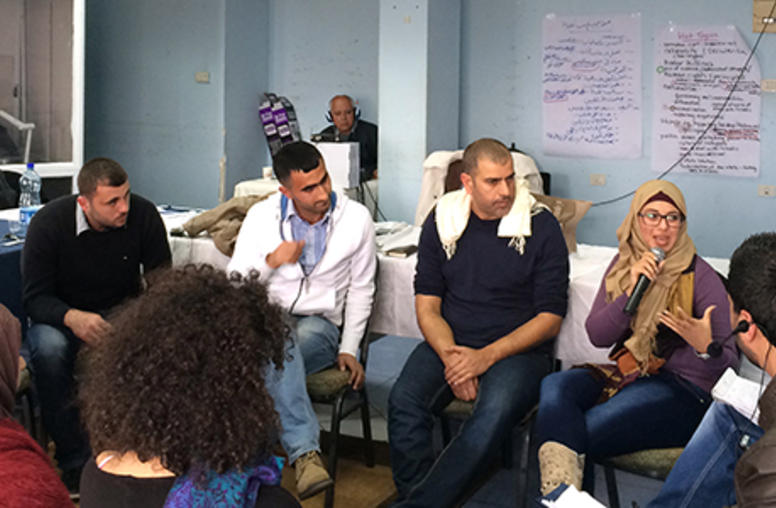
Dialogue: Calming Hot Spots Calls for Structure and Skill
Dialogue has been around as long as humans faced with a crisis have gathered in circles to talk. It is one of the oldest forms of conflict resolution and is still, when well-conceived and executed, one of the most effective. But the familiarity of dialogue can lead to oversimplification or to the perception that it is easier to do successfully than is actually the case.